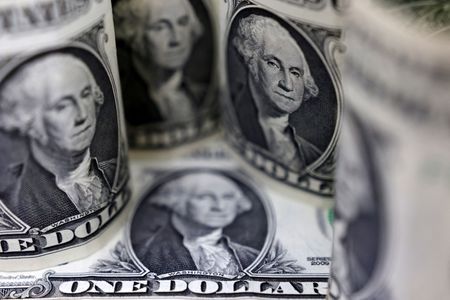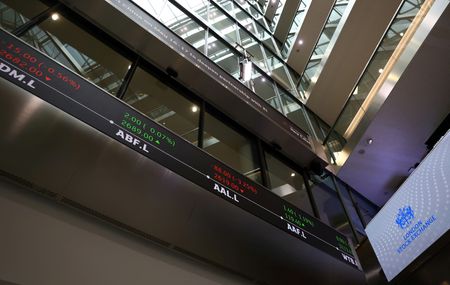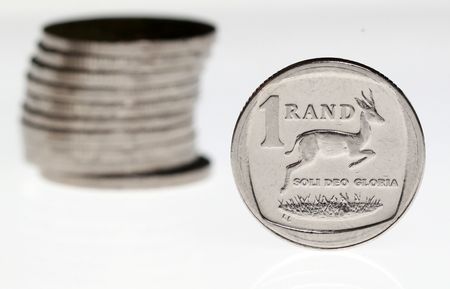JOHANNESBURG (Reuters) -The South African rand rebounded on Friday after a two-week slump, as the U.S. dollar eased on global markets and risk appetite was lifted by Chinese authorities pledging to support economic growth.
At 1400 GMT, the rand traded at 15.7550 against the dollar, around 1.7% stronger than its Thursday close.
The rand was still on track to end down almost 1% against the dollar this week after falling over 6% last week.
The dollar edged down from its recent 20-year high on Friday but was on course for its best month since 2015.
South African economic data releases on Friday were mostly positive, with private sector credit expanding 5.89% year on year in March, greater than February’s 3.62% increase. The trade surplus widened to 45.86 billion rand from 11.50 billion rand in February.
March’s budget deficit widened to 37.22 billion rand from 28.61 billion rand a year earlier.
In equities, battered stocks extended their rebound on China’s vow to step up economic growth. The Johannesburg All-Share index closed 1.26% firmer at 72,438 points, while the Top-40 index climbed 1.43% to 65,475 points.
A top decision-making body of the ruling Communist Party said on Friday China would take steps to support its economy, including embattled internet platforms, as risks grow from its COVID-19 outbreaks and the Ukraine crisis.
That lifted Hong Kong tech shares, with tech giant Tencent Holdings soaring 11%.
The optimism was also powered by reports that China’s top leaders will hold a symposium early next month with a number of internet companies, expected to be chaired by President Xi Jinping, fuelling investor hopes that the worst may be over for an unprecedented, multi-pronged crackdown that began in late 2020.
Johannesburg-listed shares of Prosus NV, which owns a 29% stake in Tencent, jumped 8.45%, tracking Tencent’s spike. In turn, market heavyweight tech investor Naspers , which majority-owns Prosus, climbed 7.94%.
The government’s benchmark 2030 bond was also stronger, with the yield falling 4.5 basis points to 9.97%.
(Reporting by Nqobile Dludla and Alexander Winning; Editing by Richard Chang)









